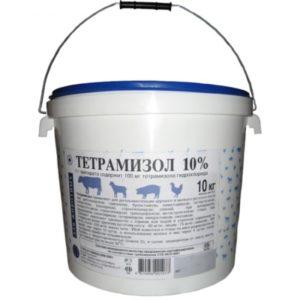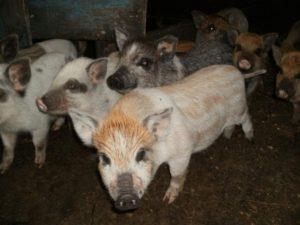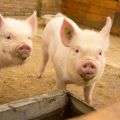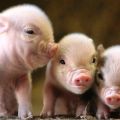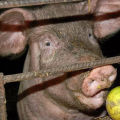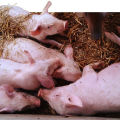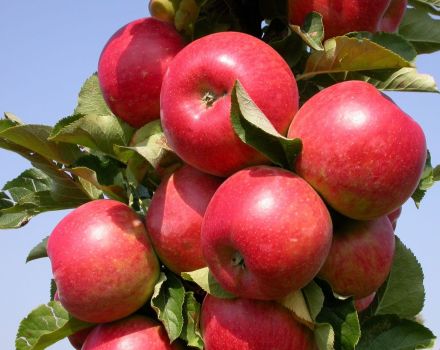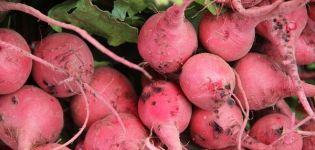Why piglets eat poorly, causes and how to fix it, what to do for treatment
Healthy piglets look cheerful, eat well, gain weight, grow quickly. To do this, you need to monitor the cleanliness of the content, their health, the correct feeding diet. Sometimes the owners notice that the animal becomes boring, does not even want to look at the food. It is necessary to find out the reasons for the behavior, why the piglet does not eat well and how to fix this situation.
Causes and symptoms of poor appetite in pigs
Pigs refuse to eat for several reasons:
- flaws in the diet of the animal;
- serious health problems;
- errors in content.
You can understand that an animal is feeling unwell by a number of symptoms:
- lethargic behavior;
- the piglet lies all the time;
- loss of appetite;
- temperature increase;
- rapid breathing;
- change in the appearance of skin, feces, urine.
Vitamin D deficiency
If the pig does not receive enough vitamins, it develops vitamin deficiency, leading to a drop in immunity, changes in the quality of metabolic processes, lack of appetite, and developmental delay. Lack of vitamin D is accompanied by deformation of the bones, convulsions appear, gait becomes unsteady, shaky. The animal stops eating normally, does not get up, loses weight, and rickets may develop.
To correct the situation, foods containing the required amount of vitamin D are introduced into the diet. Sometimes it is enough to add whole milk, fish oil to the menu to improve the situation. Helps to solve the problem of meat and bone or blood meal.
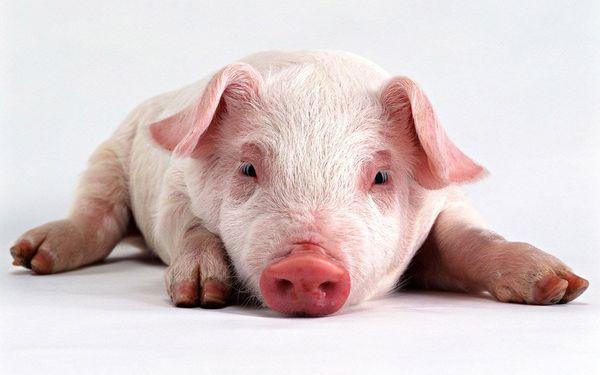
The pig's body itself is capable of producing vitamin D under the influence of ultraviolet radiation. For this, the animal is provided with comfortable walking in the fresh air in the summer. In winter, when the risk of developing rickets is maximum, an ultraviolet lamp is placed in the room and the animals are irradiated for 4-8 minutes. On the recommendation of a veterinarian, in an emergency, the pig is injected with vitamins or added to the feed.
Improper nutrition
An unbalanced diet can result in intestinal upset in piglets. The digestive tract of young animals is rather delicate, unable to fully digest dry food, which the owners often give them. Coarse feed, too cold or hot water is harmful for young animals. Their reaction to sudden changes in the diet is negative - piglets do not eat well or refuse new food altogether. Upset stomach, gastroenteritis are possible.
A monotonous diet also leads to loss of appetite. Pigs have different tastes. To maintain a constant interest in food, you should change the flavor of the additives, and the pig will eat with pleasure.It is necessary that all components are present in the diet of animals - proteins, fats, carbohydrates, essential minerals and vitamins. Animals should have free access to fresh food and the opportunity to eat their fill.
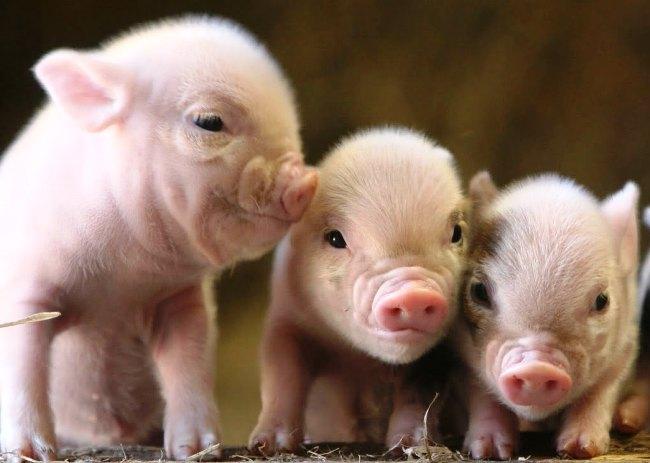
It is believed that a good increase is provided by feeding plant foods in large quantities. This is a misconception, it is more correct to use high-quality compound feed, and use plant foods as an additive. It is important to comply with the feeding norms for piglets of different ages.
Worms
One of the main reasons that the pig is lethargic, loses its appetite or completely refuses to eat is worms.
Symptoms of helminthic invasion include:
- anxiety of animals,
- poor sleep;
- rubbing its tail against hard surfaces;
- coughing and sneezing when infected with nasopharyngeal worms;
- elevated temperature at an advanced stage;
- weight loss;
- the grunt is quiet and hoarse.
Sometimes piglets infected with worms bite and attack other individuals. Large helminths can be seen in feces when cleaning the premises from manure. Individuals in which worms are found should be removed. Isolation is carried out for the purpose of prophylaxis and so that the infected do not disturb the rest of the pigs. Antihelminthic drugs are given to all animals in the pigsty, whether they have worms or not.
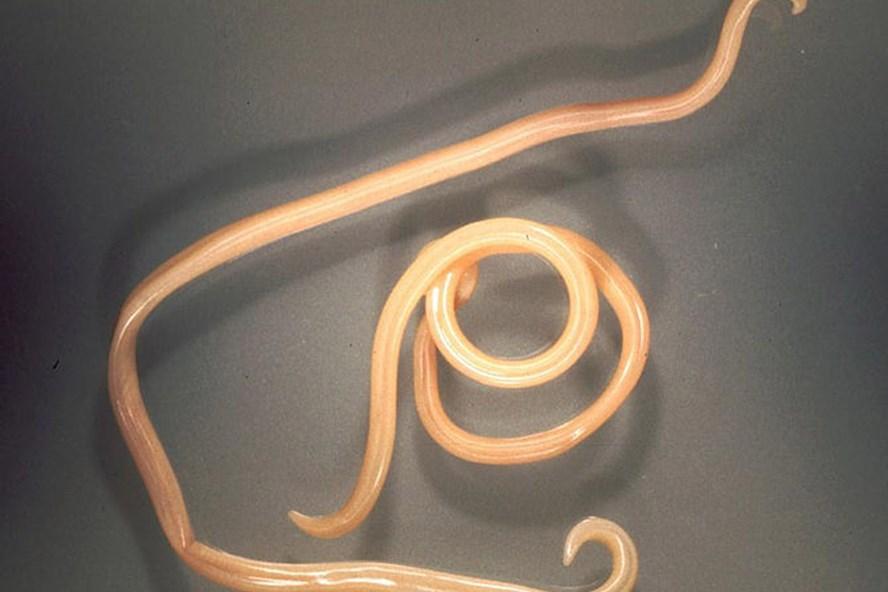
To determine the dose and frequency of use of the anthelmintic drug, it is recommended to contact your veterinarian. The use should be strictly as prescribed, since some drugs are very toxic and are excreted from the body for a long time. The room is subjected to thorough cleaning and subsequent disinfection.
Infectious diseases
Piglet illnesses caused by infection are often accompanied by symptoms:
- loss of appetite;
- the piglet is lethargic, lies and does not fit with food;
- body temperature rises;
- there is a cough, vomiting, profuse salivation, bloody diarrhea;
- ulcers form on the mucous membranes;
- coordination of movements is impaired;
- weakness, muscle trembling appears.
Any changes in the animal's behavior should be recorded and a veterinarian should be consulted.
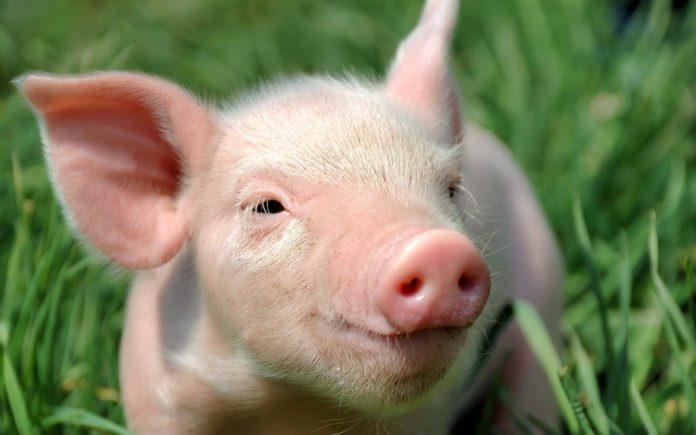
Edema disease
It occurs during weaning of piglets from a sow. The nervous system is affected as a result of tissue edema. Young animals who have gained a large body weight are more often sick. The first three days after infection are asymptomatic, loss of appetite is possible. Then the temperature rises sharply, paralyzes the limbs, the eyes swell, the chest and head swell. The piglet is in great pain, it squeals loudly. The death rate of young animals is high.
Plague
The most dangerous disease for pigs. Transmitted by rats and lice. Typical symptoms of plague:
- heat;
- lack of appetite;
- purulent discharge from the eyes;
- red spots on the skin;
- rash;
- at a later stage - foam at the mouth.
Unvaccinated individuals die.
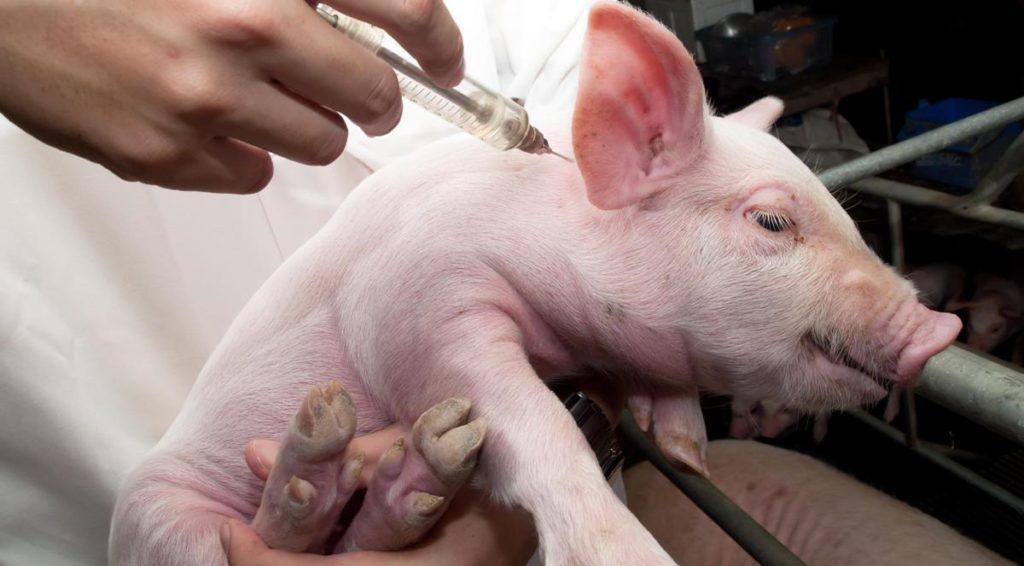
Smallpox
The infectious disease leads to numerous deaths of young animals. Symptoms include:
- apathetic state;
- loss of appetite;
- rashes starting in the groin;
- the formation of dark scabs;
- unsure, wobbly gait.
The best prevention of piglets' diseases is timely vaccination, the timing of which can be found out from the veterinarian. If there is a suspicion that at least one individual has fallen ill, it is urgent to plant it and seek help from a specialist.
Incorrect air temperature
Piglets are very demanding on environmental conditions. They are extremely sensitive to sudden changes in temperature and humidity. In a stuffy and damp room, animals do not feel well, breathe heavily, lose their appetite, and slowly gain weight.

For newly born babies, the optimum ambient temperature is +25 ⁰С. After a week, it can be reduced to +20 ⁰С.In winter, the temperature in the pigsty should not fall below +13 ⁰С or rise above +20 ⁰С. You can maintain this mode with the help of lamps or heating appliances. Additionally, a flooring is made, raised to a height of about 20 cm above the floor level, and covered with straw. Comfortable humidity - 50-70%.
The room should be ventilated to provide fresh air to improve the appetite and health of the animals. In this case, drafts must be excluded in order to prevent hypothermia of piglets and the occurrence of colds. In regions with a cold climate, the walls of the pigsties are additionally insulated.
Stress
Pigs are not stress-resistant animals. Due to their vulnerability, they are able to experience mental trauma even with a slight change in lifestyle. The result is loss of appetite or complete refusal to eat. A number of factors act depressingly on the pig's nervous system:
- weaning piglets from a sow;
- change of location;
- transfer to another type of feed;
- vaccinations, operations, injections;
- insufficient lighting in the room;
- crowding of individuals;
- sharp jumps in ambient temperature.
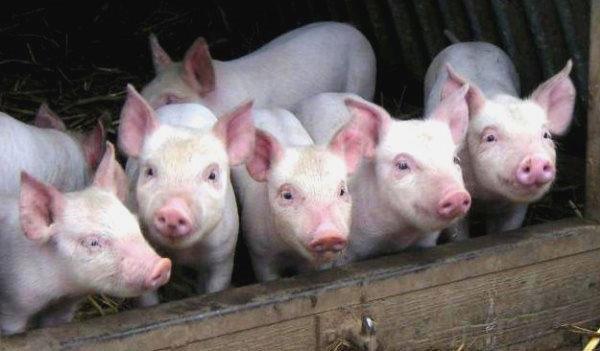
For small piglets, the transition period from breastfeeding to regular feed is important. To stop them feeling stressed at this moment, they use essential oils. They are first added to the feed of sows, and later to young animals. Thanks to the familiar smell, the addiction passes faster, the piglets do not lose their appetite.
It is very important for young animals to organize a play space that is spacious and clean. These factors have a beneficial effect on their appetite and health.
Diagnosing the problem
If the pig has lost its appetite and eats poorly - a reason to think about the state of its health. Many pathologies begin with the animal becoming dull and lethargic. The best solution is to call your veterinarian to determine the cause. When this is not possible, it is worth transferring the pig to a separate room and watching him.
If you experience diarrhea, seizures, fever, salivation, or spots on the skin, contact a special service should be immediate. Losing time can lead to the death of all pets.
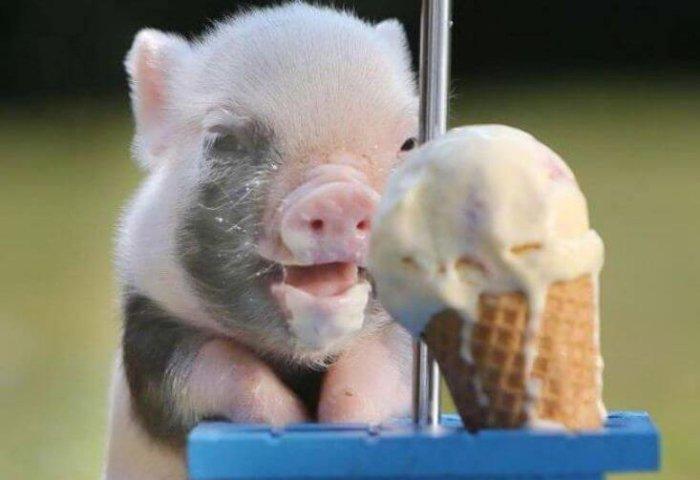
How to make feed attractive to pigs?
It happens that the appetite of pigs disappears due to the fact that they get bored with the same feed. It is easy to change the familiar taste by adding salt, mustard, lactic acid or sugar. Supplements improve appetite, animals show interest in food. Periodically, spices need to be changed, to create variety. Young piglets very willingly eat grain, previously boiled or fried. It smells good and is well absorbed by the gastrointestinal tract.
When the pigs are not eating or even wanting to get up, a yeast treatment can be used. Baker's yeast is added to food, the composition of which includes vitamins, amino acids, proteins. After such nutrition, the piglets' condition and well-being improves.
If the animals do not eat well, you can increase their appetite and attract them to feed by changing the conditions of detention. With proper care, cleanliness, maintaining the necessary parameters of temperature, humidity and lighting, this will not be difficult.
